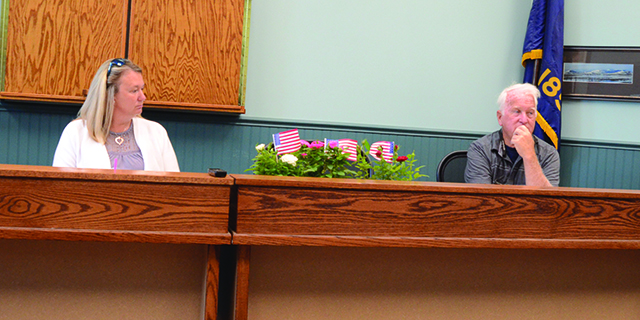Mountain Medicine
Published 2:09 pm Monday, May 4, 2020

- The higher up the evidence pyrimid, the more stringent the requirements for proof.
Science poorly conducted or poorly reported is counter to the public interest.(JAMA, April 24, 2020).
Finding effective treatments for COVID-19 infection is an international priority. Today’s Mountain Medicine reviews two drugs recently reported to be effective for treatment of COVID-19 infections: hydroxychloroquine (HCQ) and remdesivir. The goal is to describe how treatments for COVID-19 will be evaluated so you will better understand reports of clinical trial results in the coming months.
Trending
Evaluating new treatments requires knowledge of a framework that helps us sort out good data from bad. The accompanying Figure, the “Hierarchy of Scientific Evidence”, shows the progression from weakest evidence at the bottom to the strongest at top. Note that the following are not considered evidence: “I read on the internet..”, or “A friend told me…” or “Why not try injecting bleach into the body?”
Until recently there has been little evidence of an effective therapy for COVID-19 infections. Each new report will be evaluated in part by its study design; the various ways that data can be collected as shown in the Figure. Some of the category names are probably unfamiliar, but the strengths and weaknesses of studies in each category are well known to scientists and clinicians. Studies of the highest quality are likely familiar to you–the randomized controlled trial can establish whether a causal relationship exists between a therapeutic intervention and an effect.
What have we learned by applying this evaluation framework to new evidence regarding COVID-19 treatments?
Hydroxychloroquine (HCQ). On March 21, President Trump tweeted that hydroxychloroquine and azithromycin have “a real chance to be one of the biggest game changers in the history of medicine.” This comment followed a French research report from the previous day. In contrast, Dr. Fauci was unimpressed; he referred to the study as “anecdotal”.
Why this difference in interpretation? Because Dr. Fauci is an expert in assessing the quality of clinical trials, and the president is a real estate developer. The French study reported that 26 adult patients with COVID-19 infection received HCQ; six also received azithromycin. Clinical and laboratory outcomes were assessed over time. The authors “recommend that COVID-19 patients be treated with hydroxychloroquine and azithromycin to cure their infection.“
In the Figure, this study falls into the “case reports” study design, the lowest level of evidence. This is why Dr. Fauci was unimpressed; there was no valid control group and it is impossible to determine if HCQ had a real effect. This study received huge attention and a thorough assessment of its many deficiencies is available here: www.redactionmedicale.fr/2020/03/Review_20_03_20_001%5B1%5D.pdf
Trending
On April 2, President Trump said of HCQ, “What do you have to lose? Take it.” We now know what you have to lose is possibly your life. Since the president’s comments at least 3 clinical studies have documented that a majority of patients receiving HCQ, with or without azithromycin, will develop cardiac rhythm aberrations that place them at high risk for potentially fatal arrhythmias (JAMA Cardiology, Editorial, May 1, 2020).
Remdesivir: The first good evidence that there may be an effective drug to treat COVID-19 infections was announced by Dr. Fauci one week ago: remdesivir “will be the standard of care”. He provided summary results of an unpublished clinical trial conducted by the National Institutes of Allergy and Infectious Diseases. The study randomized 1063 hospitalized patients to remdesivir or placebo and reported that patients treated with remdesivir had an average recovery time of 11 days compared to 15 days for placebo recipients. This difference was “statistically significant” (i.e., random chance was unlikely to explain the difference) and clinically significant (although the magnitude of the difference in recovery time appears modest). Mortality was lower in the remdesivir group, but the difference was not statistically significant.
In contrast to the study from France, this study used a superior study design, enrolled a large number of patients and therefore its observations and conclusions are far more reliable. It is possible that deficiencies in the study may appear during the peer-review process, but at this time remdesivir is the only drug “proven” to be effective for COVID-19. It is likely to be widely used until superior therapies are found.
In summary, there are hundreds of ongoing clinical trials for treatment of COVID-19 infection. Assessing the quality of evidence for new therapies (and immunizations) and separating good science from bad is critical for identifying effective treatments. I am optimistic that good science will prevail, but finding the truth takes time. In the mean time, listen to the experts, not the politicians.
Ron Polk is the editor of Mountain Medicine.








